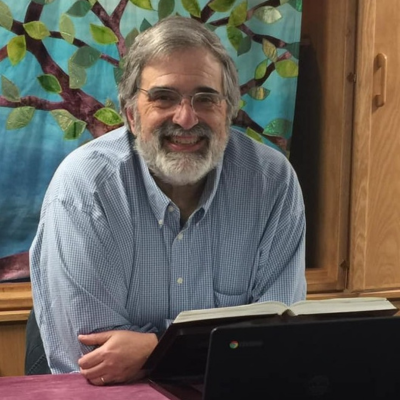“When I look at those poor people, I see us.”
My father, Elliott Arian, passed away in November 2021, but for the last few weeks of his life, he wasn’t really able to speak. My last coherent conversation with him was some time in September 2021. He was very upset because he had been watching coverage of the U.S. withdrawal from Afghanistan and the people who had worked with the Americans desperately trying to get onto American planes leaving Kabul, even trying to grab onto the wings as they took off. He said that he was upset because “when I look at those poor people, I see us.”
My dad was born in 1929, the son of two Eastern European Jewish parents who came to the United States in their teens. He was old enough to remember Jews desperately trying to get out of Europe, and his parents, aunts, and uncles worrying about relatives left behind and wondering what would become of them.
Find more resources on Ekev.
Deuteronomy 10:19 says “וַאֲהַבְתֶּ֖ם אֶת־הַגֵּ֑ר כִּֽי־גֵרִ֥ים הֱיִיתֶ֖ם בְּאֶ֥רֶץ מִצְרָֽיִם׃.” “And you shall love the stranger for you were strangers in the land of Egypt.” The first word is usually translated as “love” although more contemporary Jewish translations use the word “befriend.” At any rate, it’s clear that we are supposed to treat the ger — stranger — fairly and compassionately because we were gerim in Egypt. This or analogous commandments are repeated 36 times in the Torah, makingit the most repeated law in the entire Pentateuch. While the word ger came to mean a convert to Judaism in rabbinic Judaism, it’s clear from the context that in the Torah a ger is a person who fled to a land other than the one where he or she was born, and cannot count on fair treatment from the natives of the new land. The Torah tells us that God has special regard for such people, and we are supposed to as well.
“When I look at those poor people, I see us.” The ability to see ourselves in others, to understand what it would feel like if we were in their place, is what we mean by the word “empathy.” There are still people alive who remember that in 1939 the SS St. Louis, a ship with 937 Jewish refugees fleeing the Shoah, was turned away from Cuba, from the United States, and from Canada. It returned to Europe and of the 937 on board, the U.S. Holocaust Museum estimates that around 250 were murdered in the Holocaust. Recent and ongoing refusals of our government to admit refugees fleeing persecution and murder shame us all — not to mention the arrests, detentions, expulsions, and the general reign of terror unleashed upon immigrants since January 20. This is especially so since the point person on U.S. immigration policy is a Jewish great-grandson of refugees from Czarist Russia.
Find more information on T’ruah’s immigration work.
The Torah reminds us that we were strangers in Egypt because our historical experience should condition us to solidarity with others who don’t share our religion, our language, our sexual orientation, or our skin tone, but share our or our ancestors’ experience of fleeing persecution. The late Rabbi Jonathan Sacks wrote that the commandment to love the stranger is in a very real sense countercultural. “Love your neighbor” is relatively easy. It’s easy to empathize with those who are like us, but Rabbi Sacks wrote that human nature has evolved to condition us to be suspicious and fearful of those who are outside the group.
God commands us to love the stranger, Rabbi Sacks wrote,
“…because you once stood where he stands now. … If you are human, so is he. If he is less than human, so are you. ..I made you into the world’s archetypal strangers so that you would fight for the rights of strangers — for your own and those of others, wherever they are, whoever they are, whatever the colour of their skin or the nature of their culture, because though they are not in your image — says G-d – they are nonetheless in Mine. There is only one reply strong enough to answer the question: Why should I not hate the stranger? Because the stranger is me.”
Charles Arian is rabbi at Kehilat Shalom, a Conservative synagogue in Montgomery Village, Maryland. He previously worked as a Hillel rabbi and as a think tank scholar in Christian-Jewish relations. He is a T’ruah chaver and a member of the Social Justice Commission of Conservative/Masorti Judaism.

